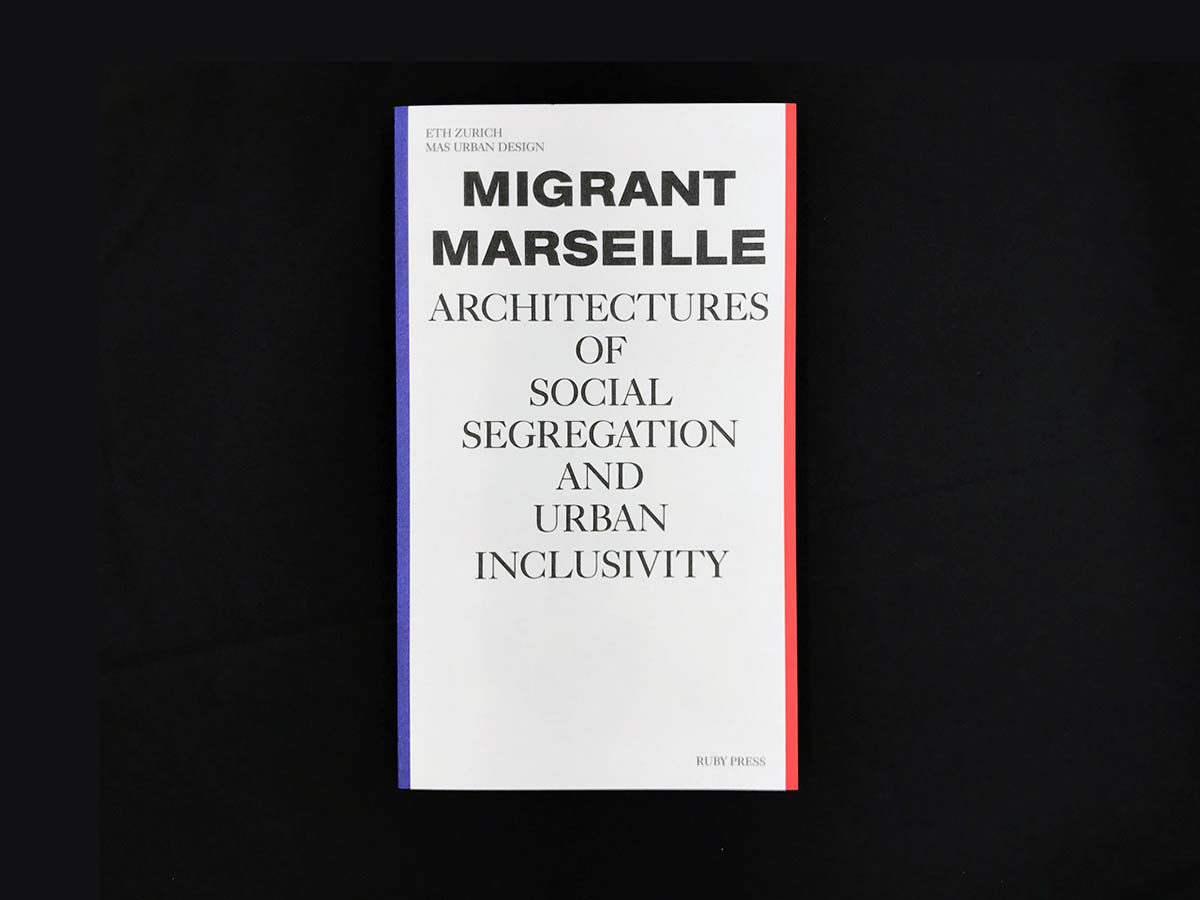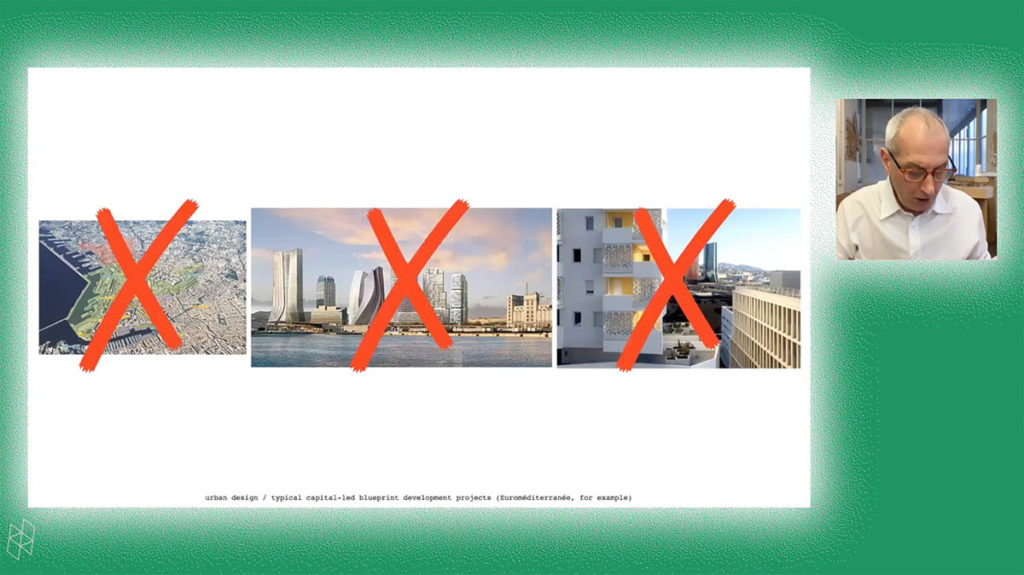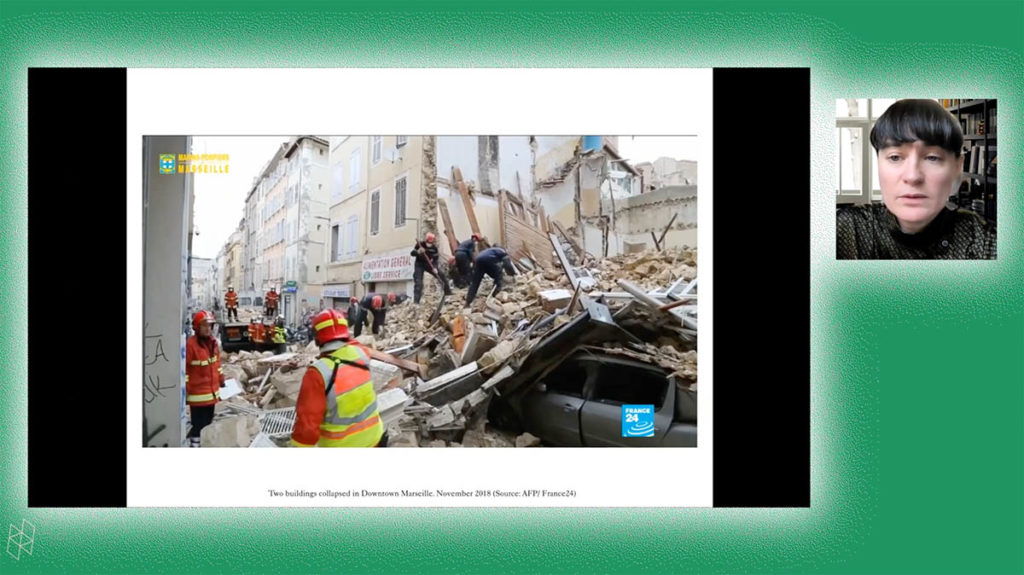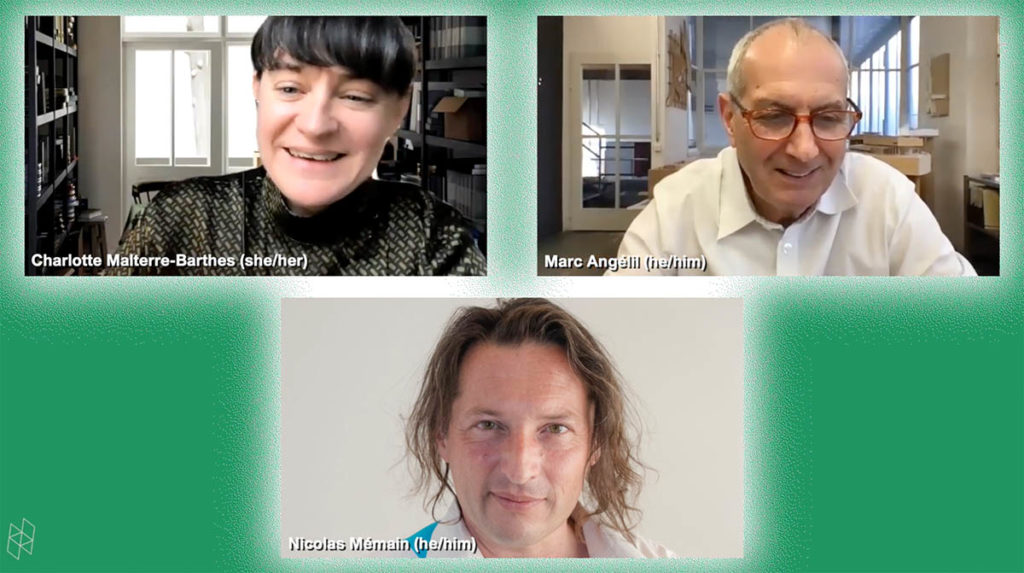Marc Angélil, Charlotte Malterre-Barthes, and Nicolas Memain, “Migrant Marseille: Architectures of Social Segregation and Urban Inclusivity”

The GSD’s Spring 2021 Public Programs are all virtual and require registration.
Event Description
Marc Angélil, Charlotte Malterre-Barthes, and Nicolas Memain in conversation, discussing their newest publication Migrant Marseille: Architectures of Social Segregation and Urban Inclusivity, co-edited with Something Fantastic (Berlin: Ruby Press, 2020).
On November 5, 2018, a pair of dilapidated buildings in central Marseille collapsed, taking the lives of eight people, many of them from immigrant origin. This toll of urban decay reflects both the diversity of the district and the hardship of living in Marseille, a city marked for centuries by migration, poverty, and social inequality. Divided along ethnic and class lines, with wealthy conservatives dominating the south and an energetic but pauperized community of immigrant origins in the north, Marseille highlights the tensions stemming from discriminatory governance, lack of housing-stock maintenance, constant influx of migrants, widespread privatization of services, as well as rapid, profit-driven, and destructive post-industrial urbanization. Migrant Marseille examines this complex city through the prisms of migration and socio-spatial production – at the architectural, urban, and territorial scales. In this conversation, Charlotte Malterre-Barthes, Marc Angélil, and Nicolas Memain will discuss the role of planners and urban designers in fostering social and spatial integration.
This event is supported by the Prof. Bill Breger, MAR ’45, Fund in Honor of Professor Walter Gropius.
Speakers
Marc Angélil is a practicing architect and urban designer at agps architecture, a firm with ateliers in Los Angeles and Zurich. He holds the 2021 Kenzo Tange Visiting Professorship in Architecture and Urban Planning and Design at Harvard University and is professor emeritus from ETH Zurich, conducting research on social and spatial developments of metropolitan regions worldwide. His most recent publication Mirroring Effects: Tales of Territory, co-written with Cary Siress, explores the socio-spatial impact of development-led urbanization on local habitats in different world regions today. His installation at the 2021 Venice Architecture Biennale – in the Co-Habitat section of the exhibition How Will We Live Together? – addresses the hybrid economic and political forces at work in the production of Addis Ababa’s urban fabric, foregrounding prevalent conflicts of coexistence, while exploring alternative ways of how Addis Ababa might live together in the future.
Charlotte Malterre-Barthes is an architect, urban designer, and Assistant Professor of Urban Design at the Harvard Graduate School of Design. Malterre-Barthes’s teaching and research interests are related to how design disciplines can critically engage with issues of resources, the mainstream economy, governance, and ecological/social justice. Principal of the urban design agency OMNIBUS, she holds a PhD from ETH Zurich on the effects of the political economy of food on the built environment. As guest professor at TU Berlin (2018-2019), she investigated and challenged the predatorily modus operandi of real estate in the German capital, and as program director of the Master of Advanced Studies in Urban Design at the chair of Marc Angélil (2014-2019) focused on informal housing, migration, and inclusivity in Mediterranean cities, publishing Housing Cairo: The Informal Response (2017) and Migrant Marseille: Architectures of Social Segregation and Urban Inclusivity (2020). Co-curator of the 12th International Architecture Biennale of São Paulo (2019), she also co-authored Some Haunted Spaces in Singapore (Edition Patrick Frey) and Eileen Gray: A House under the Sun. Malterre-Barthes is a founding member of the Parity Group and Front, activist networks dedicated to improving gender equality in architecture.
Nicolas Memain is an urbanist without a diploma. He is a member of the Cercle des Marcheurs and cartographer of the GR2013®. In 2013 he received the prize of Urban Planning of the French Academy of Architecture for the creation of a metropolitan path. As a specialist in urban planning and architecture of the twentieth century, he organized architectural walks in several municipalities of the Bouches-du-Rhone area and participated in an architectural inventory for heritage and preservation. In 2020, he was elected municipal councillor of the first district of Marseille.
How to Join
The event will also be live streamed to the GSD’s YouTube page. Only viewers who are attending the lecture via Zoom will be able to submit questions for the Q+A. If you would like to submit questions for the speakers in advance of the event, please click here.
Anyone requiring accessibility accommodations should contact the Public Programs Office at (617) 496-2414 or [email protected].
#GSDEVENTS


